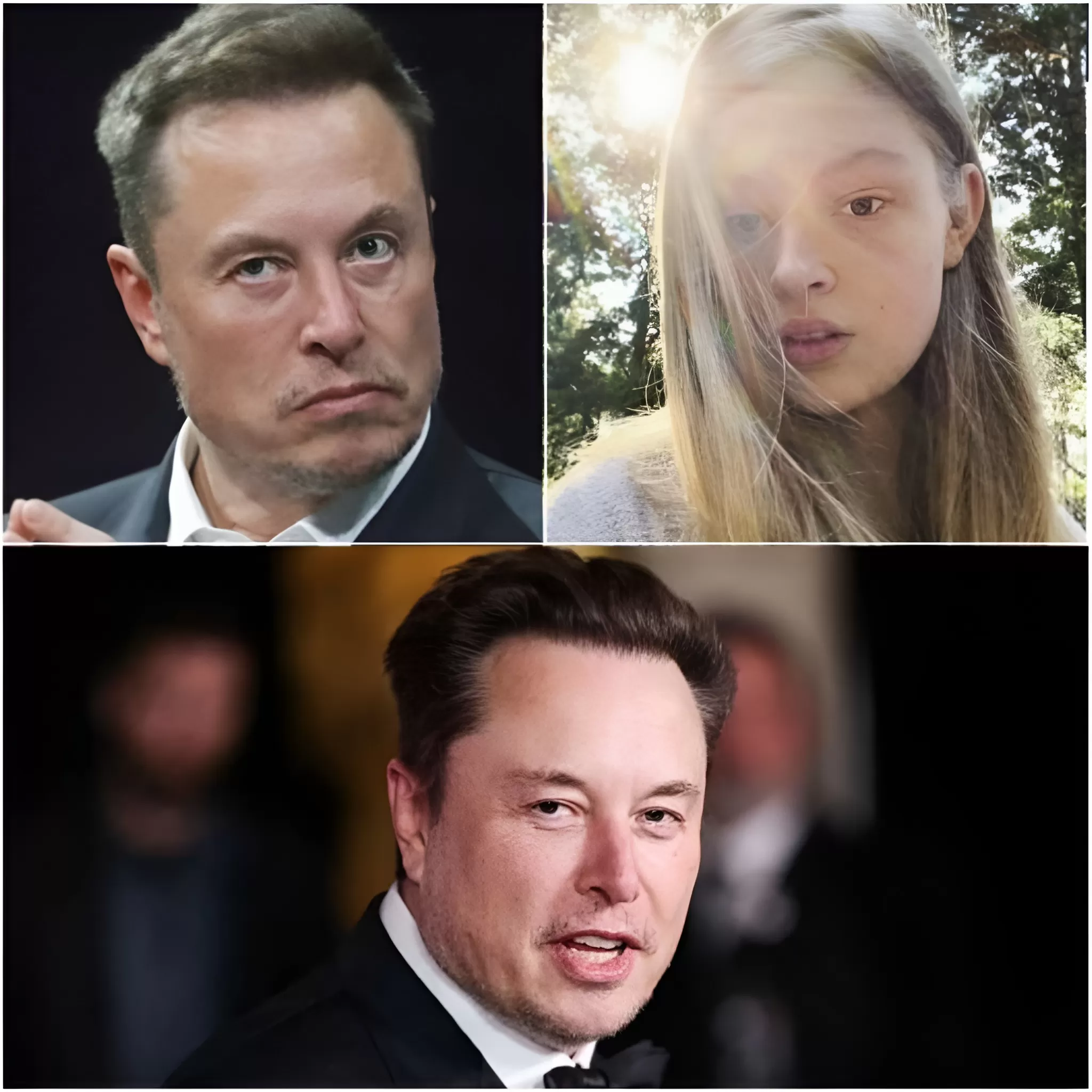Elon Musk’s estranged daughter, who transitioned and legally changed her name to Vivian Jenna Wilson, has made headlines after her decision to leave the US

after Donald Trump’s 2016 election victory. The 18-year-old, who is the daughter of Elon Musk and his ex-wife Justine Wilson, has publicly said she no longer feels she has a “future” in America under a Trump presidency, citing the political climate and the challenges facing the transgender community in the United States as key factors in her decision.
The significant personal gesture comes after a highly publicized and tumultuous relationship with her famous father, and reflects the broader struggles many members of the LGBTQ+ community have experienced in the wake of Trump’s election.

Vivian’s decision to leave the country was deeply personal, shaped by a combination of her own identity struggles and the political atmosphere that developed during Trump’s rise to power.
As a transgender woman, Vivian had been an outspoken advocate for LGBTQ+ rights and equality prior to her estrangement from her family and concerns over Trump’s policies, particularly on LGBTQ+ issues.
The Trump administration’s stance on transgender rights, including efforts to ban transgender people from serving in the military and attempts to roll back protections for transgender people in the workplace and health care, deeply alarmed many, and Vivian was no exception. In interviews and statements after the election, she expressed growing fear that the country she had known and grown up in was no longer a safe and supportive place for her, as a trans person, to thrive.

Her decision to leave the United States was also tied to her strained relationship with her father, Elon Musk. The father-daughter relationship had been the subject of intense media scrutiny even before her transition. After publicly changing her name and gender, Vivian distanced herself from her father and his controversial public persona. Musk, the billionaire CEO of Tesla and SpaceX, has made several public statements over the years about his beliefs, some of which have been criticized by members of the LGBTQ+ community. Her estranged relationship with her daughter became more public after she decided to change her name and pursue a life that seemed to diverge sharply from the values Musk has espoused. This estrangement was made official when Vivian filed legal documents to change her name and gender in 2022, stating that she wanted to sever ties with her father and identify independently because she no longer wanted to be associated with him.
In her petition, Vivian explained that her desire to change her identity was not only related to her gender transition, but also to her disapproval of her father’s policies and actions. She stated that she no longer wanted to be associated with someone whose public views conflicted with her values and self-worth. The announcement came as a shock to many, given Elon Musk’s high-profile status and his previous public support for his children. However, for Vivian, the decision to distance herself from her father and pursue her transition was necessary for her well-being and sense of empowerment.

For Vivian, leaving the United States was an attempt to escape the increasingly hostile political climate toward transgender people under the Trump presidency. In her statements, she spoke of the difficulty of adjusting to life in a country where her rights and identity were under threat. The Trump administration’s rollback of Obama-era protections for transgender people in education, health care, and housing felt like a direct attack on her dignity and prospects. Vivian, who had grown up in the spotlight because of her father’s fame, seemed determined to build a new life in a place where she would feel more supported and where her identity would not be subject to political instability.
While the exact country she chose to relocate to has not been fully revealed, Vivian’s desire to escape the cultural and political climate of the United States makes sense given the circumstances. Many transgender people and LGBTQ+ advocates have considered leaving the United States for more tolerant and progressive countries, where legal protections for the transgender community were stronger and cultural acceptance of trans people was more widespread. Vivian’s decision to leave the United States is part of a larger trend that reflects how the political climate can profoundly affect the personal lives and well-being of marginalized communities.
Vivian’s estrangement from Elon Musk has continued to evolve since the 2022 lawsuit. Despite Musk’s public statements about his support for his children and his sometimes conflicting views on gender and politics, Vivian’s public rejection of her father underscores the deep personal divide between them. Musk’s controversial remarks on transgender issues, particularly his dismissive stance on gender identity, have made it clear that his daughter’s values are in direct opposition to his own. In contrast, Vivian has expressed a desire to live her authentic life, separate from the shadow of her father’s celebrity and public persona. Her legal name change, combined with her decision to leave the country, further reinforces her desire to live a life based on her own values and free from the expectations placed on her by her family background.
Trump’s election has had a profound impact on LGBTQ+ individuals and families, and Vivian Jenna Wilson’s story is just one example of how these broader political shifts can ripple through personal relationships. For many in the LGBTQ+ community, Trump’s victory was not just a political defeat, but a painful reminder of how vulnerable their rights are to conservative policies. Vivian’s decision to leave the United States, coupled with her estrangement from her father, highlights the complex intersection of family, politics, and personal identity, and underscores the ongoing struggles many face in their quest for acceptance and self-determination.
While Vivian’s move abroad is an important personal choice, it also speaks to the broader social and political realities facing many transgender and LGBTQ+ people in today’s world. For her, leaving America represented hope for a future where she could live authentically and without fear of political backlash—a future that felt increasingly impossible under Trump.
Follow us to see more useful information, as well as to give us more motivation to update more useful information for you.